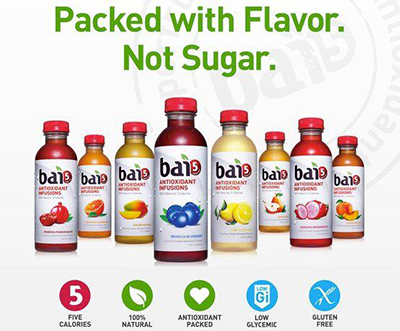There was more
than just the future president to vote on earlier this week. A tax on
sugar-sweetened beverages (namely soda) was voted through in the Californian
cities San Francisco, Oakland and Albany, as well as in Boulder, Colorado and
Cook County, Illinois, which includes Chicago. Boulder had the highest tax with
2-cents-per-ounce, while the other cities passed a tax of 1-cent-per-ounce. The
idea behind these new taxes is to generate revenue for the city and is deterrence
towards consuming these sugary and unhealthy beverages. These are not new
trends either, since 2009 there have been more than 40 attempted soda tax
efforts in cities across the United States. Before this new wave of cities that
voted through these “anti-soda” taxes, Berkeley, California, and Philadelphia,
Pennsylvania were the only cities to have such a law.
This relates to
the current trend in the soft-drink industry, where per capita soda consumption
was the lowest in 2015 that it had been in 30-years. While Coca-Cola and
PepsiCo, the two biggest players in this market, are not stopping their sugary
drinks, there has been a shift towards starting to implement smaller sizes of
these drinks. This puts the marketers of these brands in a tricky situation.
How do you continue to sell products at the same or greater rate when consumer
tastes are starting to change? To me, this is the perfect situation to do what
Doctor Pepper just announced. They invested in a beverage startup company
called Bai Brands, which offers sugar free and naturally sweetened sodas that
are a true fraction of the calories of the household usual’s. They are offering
new takes on classic flavors like cola, root beer, and citrus. One thing that
really struck me, was a quote from their CEO, Ben Weiss, who said, “We're under
the belief that people aren't running from soda -- they're running from sugar…If
you can create a beverage that's reminiscent of all those great flavors we grew
up on, but doesn't have the suspicious ingredients, I think the consumer will
go there”. Here, Bai Brands recognized an issue with the current state of the
market and is making, what they consider, a better and healthier alternative
that still has those classic tastes.
I think it will be
really interesting to see what types of decisions and moves competing soda
companies will make. I think this is great PR for Doctor Pepper as well as a
potential successful investment. Being able to pivot and adapt marketing
campaigns is a vital responsibility that these beverage marketers will have to
undertake. What do you think of this new soda tax that is starting to pop up in
a slew of cities? Leave a comment below about how you think marketers can use
this setback to reach even newer heights.

I like Dr. Pepper's response to soda taxes and an overall declining soft drink category by following customers tastes and launching a new beverage line called Bai. I think that diversifying your product line (just like diversifying your stock portfolio) is a wise decision for a beverage company. I know in my experience, we just passed the increased costs (i.e. taxes) onto consumers in the local areas with these taxes. However, I wonder if anyone has thought about subsidizing this cost by raising soda prices all over the country. And is that a fair response to local measures taxing soda? It's an interesting question that I have not thought about much because I really don't drink soda...
ReplyDeleteReally interesting and controversial post. I personally agree with the taxation on soda, as the healthcare costs to society are inevitable. I would bet strongly on the success of Dr. Pepper's sugar free drink line, and I think that they are on the right side of a paradigm shift within the food and beverage industry.
ReplyDeleteThis is a big movement as soda is almost being classed beside cigarettes and alcohol from the tax increase. I feel like this will force soda companies to maybe move more towards no carbonated drinks such as Vitamin Water and Gatorade
ReplyDelete